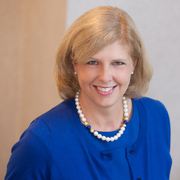How Mass General Hospital Excels in Revenue Cycle Management
- “How do you excel in revenue cycle management?” RevCycleIntelligence.com continues to ask hospital executives and leaders this simple yet intricate question to help advance the healthcare industry.

As Gary Marlow, Vice President of Finance at Beverly Hospital and Addison Gilbert Hospital, told RevCycleIntelligence.com, acquiring the most accurate information up front provides a billing and collections foundation for improved patient experience.
As Tom Lichtenwalner, Chief Financial Officer and Senior Vice President of Finance at St. Luke’s Hospital, told RevCycleIntelligence.com, one primary objective is simply breaking even on the Medicare side regarding Medicare cost-reduction initiatives.
As Neerav Jadeja, Administrator at Paradise Valley Hospital, told RevCycleIntelligence.com, understanding the root cause of denials is an essential element of hindering post-claim denial frustration.
As a continuum of this conversation and a fourth part to the aforementioned series, Sally Mason Boemer, Senior Vice President of Finance at Massachusetts General Hospital (MGH), spoke with RevCycleIntelligence.com about top strategies to manage revenue cycle and effectively maintain a bottom line as significant budget pressures gain headway. MGH, the oldest and largest teaching hospital of Harvard Medical School, was recently highly ranked among top hospitals based on quality of care, patient safety, and reputation.
According to Boemer, acquiring information up front at the primary point of entry, such as a primary care visit, or an ED or specialty visit, makes for a more cost effective approach that, in turn, increases the chance of getting paid.
“We've tried to leverage technology so whenever we are doing manual touches, we're working those accounts that we think are at higher risk or really need to be touched,” Boemer states. “With our size and scale, it's not necessarily possible to touch every account. We think a lot about creating edits or work queues and leveraging the technology to tell us which accounts are most important to work proactively.”
Joint efforts with physician organizations avoid duplication of efforts, maintains Boemer. “We do have the philosophy that we run the front end of the revenue cycle jointly with our physician organization,” she says.
“We target our visit population because a lot of the other work we do, whether it's tests being ordered or future surgeries and admissions, we often find visits and the emergency room are a key portal of entry to people who are going to access care in our system,” confirms Boemer. “The hospital and physicians have a combined front end with the same standards and the same technology. That really helps us to get that leverage.”
Significant budget pressures will cause MGH to more closely consider productivity, efficiency, and redesign elements to lower the cost of care delivered, says Boemer.
“Our near term challenge is framed in the broader environmental context that society wants to lower the cost of healthcare or at least slow the rate of growth in healthcare spending. That's the big, macro challenge we're all facing,” Boemer says.
“Whether that manifests itself as very slim increases or reductions to reimbursement levels or downward pressures on volume, that's definitely what we're seeing in this environment. For better or worse, our primary response lever is on the cost side and implementing programs to help manage utilization and population health,” she states.
Boemer confirms market pressures are another of MGH’s primary concerns. “There's little you can often do in the short run around volume and rates of payments which shifts the focus to the cost side. A lot of my time and efforts are making sure that people understand that environmental context. What's changing it, and why?” she asks. “It's very hard to motivate people to focus on reducing costs if they're not confident that you're collecting every dollar that you're owed for the work you are doing,” she adds.
“You really don't want to make some of those tough decisions around cutting programs or services or impacting your work force until you've done everything you can in the fundamental areas like revenue cycle and supply chain,” she adds.
“We're definitely seeing some shifts between government insurance and commercial insurance, as well as different utilization pressures in our surgical and procedural area versus medical. The mix of patients is something we've really been focusing on as part of the challenges we're experiencing currently,” says Boemer.
“For the local community, we really are focused on the efficiency and the low-cost care,” Boemer says. “The other is a very niche referral services. Still being efficient and cost-effective is important, but it's less about population management and more about effective episodic care.”
Boemer says the healthcare industry’s biggest opportunity is recognizing the importance of high quality data and monitoring changing trends to drive your organizational strategy. The importance of having both the systems and personnel to turn data into meaningfully actionable information for as organization in imperative, she adds.
The importance of both internal and external data is essential to enact positive revenue cycle change, she implies. “If you wait for publicly available data sources as opposed to harvesting some of your own real time, you might be too late for some of these rapidly changing trends,” she maintains.
“As you're trying to change quickly, you need data to craft your story and tell it to your workforce and bring them along with you on that journey. When you're working outside of the organization, I think there's also the expectation of more transparency and understanding what the cost of healthcare is and why the system works how it does.”
“I hope we're going to be part of the solution and not considered part of the problem of the cost of healthcare. That's a goal that we have set for ourselves as an organization. I'm confident we can continue to work at chipping away at that,” she concludes.
